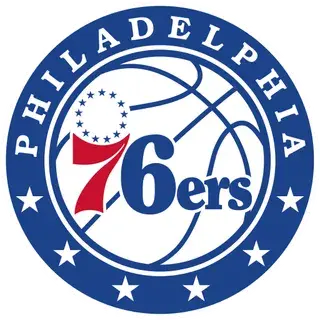Whenever there’s a big name player in a trade, a lot of fans who don’t necessarily follow the team very closely seem to come here and express strong opinions on the trade. A lot of people seem to think the Sixers got fleeced, and whether that’s true or not, the return should not be surprising. Here’s some helpful context:
Q: Why is the Harden return so bad? I expected much better.
A: This deal is very similar in value to what the Sixers were reportedly seeking. According to Stein, the Sixers sought expiring contracts, an unprotected first round pick, a first round pick swap and Terance Mann. The Sixers seem to have gotten almost that exact deal, except instead of Terance Mann they received an additional first round pick from a 3rd team. Whether Mann or a first round pick is more valuable is subjective, but they’re at least roughly in the same ball park of value.
Q: But it’s JAMES HARDEN, shouldn’t we have gotten more?
A: A player’s trade value isn’t always dependent entirely on how good they are. In Harden’s case, there were several factors that may have lowered his value:
- Harden is an expiring contract. That means the team is only guaranteed to have him this year. There is generally a ceiling on how much of a return you can expect from players on expiring contracts. The Sixers once got Jimmy Butler for Saric, Covington and one first round pick.
- Harden wants a big contract. The rift between the Sixers FO and Harden was because the Sixers didn’t want to give him that. Any team that’s trading for him now knows they’ll have to offer him a big contract to keep him around after this year.
- Harden has been discontent on three consecutive teams. Teams may be worried he’ll be discontent on their team too.
- Harden was intent on going to the Clippers. This means other teams will be hesitant to trade for a player that may not want to be there. Having a lack of other bidders also gives the Sixers less leverage.
Q: Why didn’t we get any good players? Why were we seeking expiring contracts?
A: There are two major benefits to expiring contracts. The main benefit is that they come off the books in time for free agency, which gives the team the ability to sign new players into cap space. The Sixers are on track to have a a lot of cap space going into next years free agency class. Tobias Harris’ contract, which has been a long-standing liability, expires next year. Additionally, Tyrese Maxey will have a cap hold of around 13 million before he signs an extension. This means that before Maxey signs his extension, the Sixers can sign other players into cap space while ‘pretending’ Maxey is only going to be paid 13m next season. Maxey is actually going to be paid at minimum 35m next year. The Sixers are in a pretty unique position for a contending team of having a lot of cap space.
The second benefit is that expiring contracts are easy to trade. Teams won’t think twice about accepting expiring contracts because they don’t have to worry about them after this year. Long-term contracts may be less desirable unless the players are valuable or on bargain contracts. This means expiring contracts can be easily combined with draft picks. If a player the Sixers want to trade for becomes available, they can easily make an offer with expiring contracts + picks.
Q: If the players we received aren’t good, doesn’t that mean we lost the trade?
A: The vast majority of the value we received is with the draft capital, not the players. The 2028 Clippers unprotected pick specifically could be valuable because the Clippers core is old, and their draft capital is tied up so they have limited ability to improve the team or trade for more players. If the team blows up for whatever reason, the pick could be a good one. Previously, the Sixers had very little tradable draft capital, now they are one of the limited number of contenders with 3 first round picks to trade.
Q: Why didn’t we at least get Norman Powell? He scores a lot and seems really good.
A: Norman Powell is on a long-term deal for 2 more years after this season. Essentially, the Sixers seem to value clearing the books next year over whatever value Powell provides. According to Jake Fischer, Norman Powell was considered available by the Clippers earlier this year but didn’t end up traded. It’s hard for non-insiders to speculate, but it’s possible Powell’s contract is viewed negatively and may be difficult to move on from. The Sixers may not want to take that chance, or may just not value Powell as a player.
Q: How is this team supposed to contend with draft picks and expiring contracts? Aren’t we wasting a year of Embiid?
A: The Sixers are not going to wait until 2028 and use the Clippers pick. They are going to trade it, and the rest of the draft capital. This is basically just an in-between move. What the Sixers do next is important. They may trade for a player, they may try to contend with what they have this year and target free agency. Right now the Sixers have flexibility, and it’s really only once the next move happens that this move can be properly evaluated.
Doing the Lord’s work OP. Cheers
That 2028 pick is what has me the most excited. That will be the most important part of this deal in the long run
Yes. The value was in the picks. Gave up picks to get Harden; get back more picks to trade him away.
This. My thoughts exactly. Nice reddit handle btw!👌

